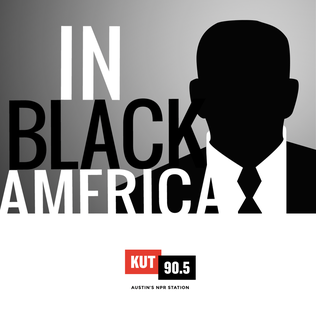
The Corporation for Public Broadcasting (CPB) is an American publicly funded non-profit corporation, created in 1967 to promote and help support public broadcasting. The corporation's mission is to ensure universal access to non-commercial, high-quality content and telecommunications services. It does so by distributing more than 70 percent of its funding to more than 1,400 locally owned public radio and television stations.

The George Foster Peabody Awards program, named for the American businessman and philanthropist George Peabody, honor what are described as the most powerful, enlightening, and invigorating stories in all of television, radio, and online media. Because of their academic affiliation and reputation for discernment, the awards are held in high esteem within the media industry.

The Internet Archive is an American non-profit organization founded in 1996 by Brewster Kahle that runs a digital library website, archive.org. It provides free access to collections of digitized media including websites, software applications, music, audiovisual, and print materials. The Archive also advocates a free and open Internet. Its mission is committing to provide "universal access to all knowledge".

National Educational Television (NET) was an American educational broadcast television network owned by the Ford Foundation and later co-owned by the Corporation for Public Broadcasting. It operated from May 16, 1954, to October 4, 1970, and was succeeded by the Public Broadcasting Service (PBS), which has memberships with many television stations that were formerly part of NET.

WGBH-TV, branded GBH or GBH 2 since 2020, is the primary PBS member television station in Boston, Massachusetts, United States.

The Public Broadcasting Act of 1967 issued the congressional corporate charter for the Corporation for Public Broadcasting (CPB), a private nonprofit corporation funded by taxpayers to disburse grants to public broadcasters in the United States, and eventually established the Public Broadcasting Service (PBS) and National Public Radio (NPR). The act was supported by many prominent Americans, including Fred Rogers, NPR founder and creator of All Things Considered Robert Conley, and Senator John O. Pastore of Rhode Island, then chairman of the Senate Subcommittee on Communications, during House and United States Senate hearings in 1967.

The National Recording Registry is a list of sound recordings that "are culturally, historically, or aesthetically significant, and inform or reflect life in the United States." The registry was established by the National Recording Preservation Act of 2000, which created the National Recording Preservation Board, whose members are appointed by the Librarian of Congress. The recordings preserved in the United States National Recording Registry form a registry of recordings selected yearly by the National Recording Preservation Board for preservation in the Library of Congress.
The National Digital Information Infrastructure and Preservation Program (NDIIPP) of the United States was an archival program led by the Library of Congress to archive and provide access to digital resources. The program convened several working groups, administered grant projects, and disseminated information about digital preservation issues. The U.S. Congress established the program in 2000, and official activity specific to NDIIPP itself wound down between 2016 and 2018. The Library was chosen because of its role as one of the leading providers of high-quality content on the Internet. The Library of Congress has formed a national network of partners dedicated to preserving specific types of digital content that is at risk of loss.

In conservation, library and archival science, preservation is a set of preventive conservation activities aimed at prolonging the life of a record, book, or object while making as few changes as possible. Preservation activities vary widely and may include monitoring the condition of items, maintaining the temperature and humidity in collection storage areas, writing a plan in case of emergencies, digitizing items, writing relevant metadata, and increasing accessibility. Preservation, in this definition, is practiced in a library or an archive by a conservator, librarian, archivist, or other professional when they perceive a collection or record is in need of maintenance.

World Channel, also branded as World, is an American digital multicast public television network owned and operated by the WGBH Educational Foundation. It is distributed by American Public Television and the National Educational Telecommunications Association and features programming covering topics such as science, nature, news, and public affairs. Programming is supplied by the entities, as well as other partners such as WNET and WGBH. It is primarily carried on the digital subchannels of PBS member stations.
Latino USA is a nationally syndicated public radio program and podcast produced by The Futuro Media Group and distributed nationwide by the Public Radio Exchange (PRX), after 27 years of being distributed by NPR. The program is anchored by Maria Hinojosa.
Basic Black is a weekly television series airing on WGBH in Boston. Originally known as Say Brother, the show was created in 1968 and aims to reflect the concerns and culture of African Americans through short-form documentaries, performances, and one-on-one conversations.
The Vanderbilt Television News Archive, founded in August 1968, maintains a library of televised network news programs. It is a unit of the Jean and Alexander Heard Library of Vanderbilt University, a private research university located in Nashville, Tennessee. It is the world's most extensive and complete archive of television news.

The Public Broadcasting Service (PBS) is an American public broadcaster and non-commercial, free-to-air television network based in Arlington, Virginia. PBS is a publicly funded nonprofit organization and the most prominent provider of educational programs to public television stations in the United States, distributing shows such as Frontline, Nova, PBS News Hour, Masterpiece, Sesame Street, This Old House and American Experience.
The Public Broadcast Laboratory (PBL) was a television program broadcast in the United States, created on November 5, 1967, by National Educational Television (NET). The program was considered a live Sunday-night magazine program. In 1969, the Ford Foundation withdrew support and the series was cancelled.
The Louisiana Digital Media Archive (LDMA) is an archive containing both the Louisiana State Archives' Multimedia Collection and the Louisiana Public Broadcasting (LPB) Digital Collection. It endeavors to preserve as well as provide public access to both collections. The LDMA is the first media collections collaboration between an American state archives and a public broadcaster. It also contributes to the American Archive of Public Broadcasting. The LDMA contains thousands of hours of media documenting over 50 years of Louisiana history, including glimpses of the state's endangered and remote communities and locales as well as interviews with notable Louisianians, such as artists, civil rights activists, military personnel, politicians, and writers.
Black Journal is an American public affairs television program on National Educational Television (NET) and later WNET. It covered issues relevant to African-American communities with film crews sent to Atlanta, Detroit, New Orleans, and Los Angeles, and Ethiopia. The program was originally an hour-long broadcast each month. In 1971, the journalist Tony Brown took over leadership and later the series transitioned to commercial television under the name Tony Brown’s Journal. The series later returned to public television in 1982 under the new name. Other executive producers included documentary filmmakers Madeline Anderson, William Greaves and St. Clair Bourne.
The Studs Terkel Radio Archive is an archive of over 1,000 digitized audio tapes originally aired over 45 years on Studs Terkel's radio show on WFMT-FM or used in his oral history collections in the books Division Street America (1967) and Working (1974). Terkel donated a total of 5,600 tapes to the Chicago History Museum, which contracted the WFMT Radio network, to publish the recordings online. The bulk of the tapes are digitized, and the archive distributes as many as possible online. The American public radio network NPR featured many of the tapes from the book "Working" during the week of September 25 – October 2, 2016. The Chicago History Museum is also working with the Library of Congress to make the tapes available to visitors to their buildings in Washington, DC.

Produced at KUT, In Black America is a long-running, nationally syndicated program dedicated to all facets of the African American experience. John L Hanson Jr. profiles a diverse selection of current and historically significant figures whose stories help illuminate life in Black America. Guests include civil rights leaders, educators, artists, athletes and writers describing their experiences, achievements and work in chronicling and advancing the quality of African American life.
Samuel C. O. Holt was a radio and television executive who made significant contributions to the early development of the Public Broadcasting Service (PBS) and National Public Radio. As the first programming director at PBS, Holt helped created such programs as Masterpiece Theatre and The MacNeil-Lehrer Report. When NPR was formed in 1970, the leadership of the network followed many of the recommendations in Holt's report, Public Radio Study, which urged noncommercial radio stations to “think about being something other than…a classical music turntable.”










